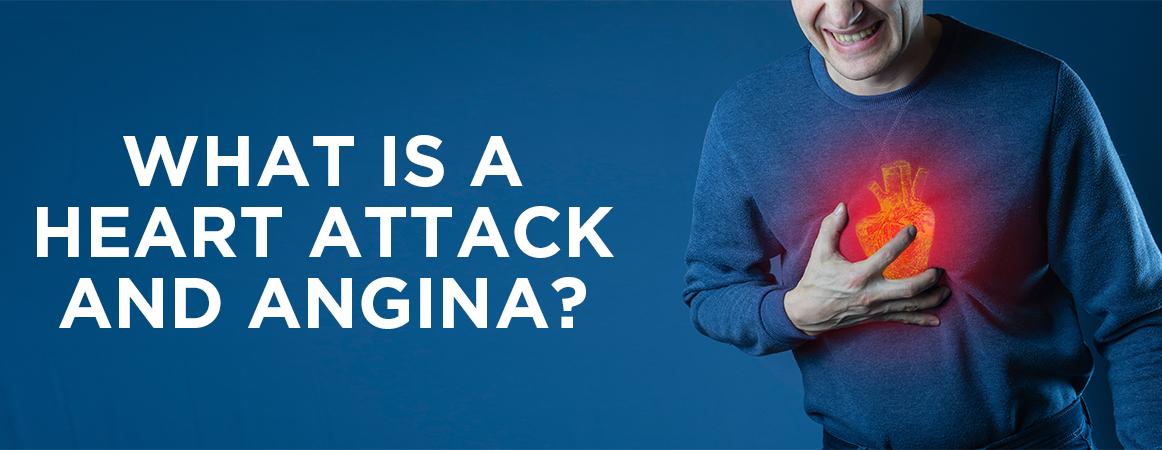Angina Pain and Heart Attack: Symptoms, Prevention, and Treatment Options

Chest discomfort is not just a physical sensation—it’s often a warning signal from your heart. Whether you’re dealing with angina or worrying about a heart attack, understanding the differences, recognizing the symptoms, and knowing preventive actions can be life-saving. This guide brings together expert insights and advanced care from Dr. RudraDev Pandey to help protect your heart.
Understanding Angina vs. Heart Attack
Angina is chest discomfort caused by reduced blood flow to the heart muscle, often due to underlying coronary artery disease. It typically feels like pressure, squeezing, tightness, or burning in the chest and may radiate to the arms, jaw, neck, or back.
-
Stable angina occurs predictably with exertion or stress and eases with rest or medication.
-
Unstable angina is more dangerous, often arising at rest and may not respond to treatments—it can foreshadow a heart attack.
A heart attack (myocardial infarction) is typically more severe—marked by prolonged, intense chest pain that doesn’t resolve with rest or medication. It may include nausea, sweating, shortness of breath, or fainting and requires immediate medical attention. Acute coronary syndrome (ACS) encompasses unstable angina, NSTEMI, and STEMI—the more serious forms demand urgent action to preserve heart tissue and life.
Recognizing Symptoms Early
Here’s how angina and heart attacks commonly manifest:
-
Angina symptoms include: chest pressure, heaviness, or burning; pain in arms, jaw, shoulder, or back; dizziness, fatigue, nausea, sweating, or breathlessness.
-
Heart attack warning signs include: intense chest discomfort lasting several minutes, pain radiating to other areas, nausea, lightheadedness, cold sweat, or shortness of breath—especially when symptoms don’t ease with rest or nitroglycerin.
Notably, not all chest pains signify cardiac problems—conditions like acid reflux or muscle strain can mimic symptoms. However, when in doubt, always seek evaluation, especially if risk factors like diabetes, high blood pressure, or obesity are present.
Prevention: Empowering Your Heart
Preventive measures are critical, especially for those with lifestyle-related risks or family history of heart conditions.
Key lifestyle interventions:
-
Heart-healthy diet
Focus on whole grains, fruits, vegetables, legumes, lean proteins, and healthy fats. Limit saturated fats, salt, and sugar. Small, frequent meals can also help people whose angina is triggered by large meals. -
Regular exercise
Aim for at least 150 minutes of moderate or 75 minutes of vigorous exercise weekly. Follow your doctor’s advice and understand your limits, especially if angina is activity-triggered. -
Quit smoking and manage stress
Smoking damages blood vessels, and stress increases blood pressure and heart rate. Stress management through meditation, breathing exercises, or therapy can help lower heart disease risk. -
Maintain a healthy weight and control chronic conditions
Keep your BMI within a healthy range and monitor blood pressure, cholesterol, and blood sugar regularly. These are key components of long-term heart health. -
Watch for subtle signs
Symptoms like frequent leg pain during walking (claudication), mild chest discomfort, or unusual fatigue can be early indicators of heart disease or blocked arteries.
Treatment Options: From Medication to Advanced Interventions
If symptoms persist or worsen—especially unstable angina or heart attack signs—immediate medical treatment is critical.
Medication strategy:
-
Nitrates (e.g., nitroglycerin) to relieve chest pain
-
Antiplatelets (like aspirin, clopidogrel) to prevent clot formation
-
Beta-blockers and calcium channel blockers to reduce heart workload
-
Statins to lower cholesterol
-
ACE inhibitors/ARBs to manage blood pressure and reduce strain on the heart
-
Ranolazine for chronic angina not responding to other drugs
Medications are often combined with lifestyle changes for early-stage management of angina.
Procedural interventions:
-
Angioplasty and stenting (PCI):
This involves inflating a balloon to open narrowed arteries and inserting a stent to keep them open. It’s a common treatment for unstable angina and minor heart attacks. -
Coronary artery bypass graft (CABG):
In patients with multiple or severe blockages, a surgical bypass is created using a vein or artery from another part of the body. -
Advanced therapies:
EECP (Enhanced External Counterpulsation) or laser therapy can be used for chronic angina patients not responding to medication or surgical interventions.
For heart attacks, early intervention—ideally within 90 minutes of symptom onset—is crucial for survival and reducing permanent heart damage.
Expertise That Matters: Dr. RudraDev Pandey
When it comes to cardiac emergencies or chronic chest pain, expert intervention makes all the difference. In Jaipur, Dr. RudraDev Pandey stands out as a highly trusted name in interventional cardiology.
With over 15 years of experience and more than 15,000+ procedures, Dr. Pandey has earned recognition for his skill, especially in performing angioplasty through the trans-radial approach (via the wrist), which leads to quicker recovery and fewer complications.
He specializes in:
-
Complex coronary interventions
-
Structural heart procedures like TAVR/TAVI
-
Device-based care using pacemakers, CRT-D, and AICD
-
Non-surgical valve replacement and paravalvular leak closures
As a seasoned Heart Failure Specialist in Jaipur, Dr. RudraDev Pandey offers comprehensive care to patients with chronic heart conditions—focusing not just on treating the problem, but also on restoring long-term quality of life.
Patients consistently praise his approachability, precision, and speed—especially during cardiac emergencies when every second counts.
Summary: Stay Alert, Stay Protected
| Aspect | What to Watch / Do |
|---|---|
| Angina Warning | Chest tightness, heaviness, radiating pain—usually improves with rest or nitro |
| Heart Attack | Severe, prolonged chest pain not relieved by rest—requires emergency treatment |
| Prevention | Eat healthy, exercise regularly, quit smoking, manage weight and chronic illnesses |
| Treatment Path | Medication → Angioplasty (PCI) or CABG → Advanced therapies if required |
| Expert Help | Dr. RudraDev Pandey provides advanced, personalized heart care in Jaipur |
Final Word
Angina is more than discomfort—it’s often the body's way of warning about deeper cardiac problems. Timely recognition of symptoms, preventive habits, and access to expert care can make all the difference in heart health.
Whether you’re seeking treatment for chronic angina or facing urgent cardiac symptoms, don’t delay. Consult experts like Dr. RudraDev Pandey and take decisive steps to safeguard your heart for years to come.








